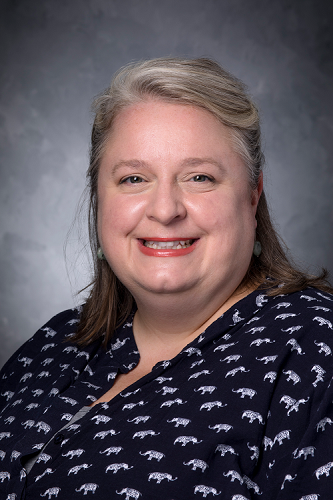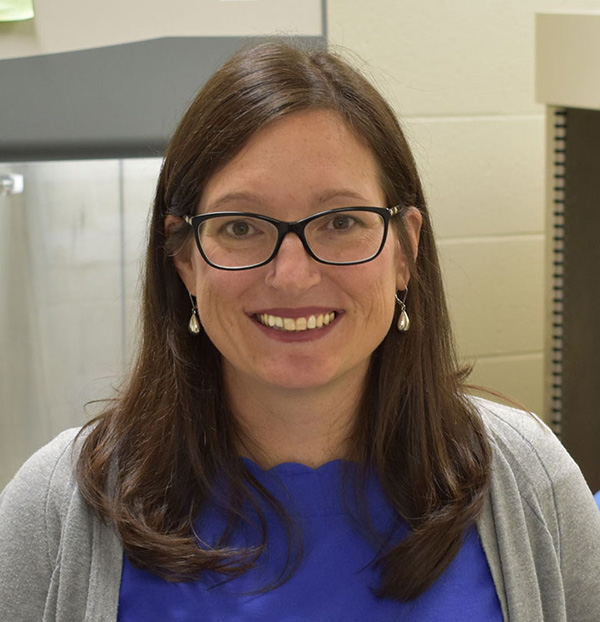University of Georgia Cooperative Extension publishes unbiased, research-backed expert advice to empower Georgians with practical, trustworthy information on agriculture, the environment, food, family and more.
For over 100 years, these expert resources have served Georgians by translating the research done in our labs and fields into how-to resources created specifically for our state and our region.
Our goal
Above all else, the goal of our expert resources is to provide opportunities for lifelong learning for Georgia residents, which is why all of them are written to be used and understood by the public.

Meet our department heads
Expert resources are written and reviewed by experts in the UGA College of Agricultural and Environmental Sciences (CAES) and the UGA College of Family and Consumer Sciences (FACS). These experts include university faculty, subject area specialists and county agents with decades of experience studying and working in their respective fields.
3,098
CAES and FACS Faculty
200+
Authors
1,395
Available expert resources
2.6M
Views on expert resources

Greg Colson
Head of the UGA Department of Agricultural and Applied Economics
Ph.D. in Economics from Iowa State University

Jennifer H Waldeck
Head of the UGA Department of Agricultural Leadership, Education, and Communication
Ph.D. in Communication from University of California, Barbara

Francis Fluharty
Head of the UGA Department of Animal and Dairy Science
Ph.D. in Animal Sciences from Ohio State University

Jodi Johnson-Maynard
Head of the UGA Department of Crop and Soil Sciences
Ph.D. in Agronomy and Crop Science from University of California

Head of the UGA Department of Entomology
Ph.D. in Ecology from University of Minnesota

Faith Critzer
Interim Head of the UGA Department of Food Science and Technology
Ph.D. in Food Science and Technology from University of Tennessee

Leonardo Lombardini
Head of the UGA Department of Horticulture
Ph.D. in Horticultural Science from Michigan State University

Marin Talbot Brewer
Head of the UGA Department of Plant Pathology
Ph.D. Plant Pathology and Plant-Microbe Biology from Cornell University

Todd Applegate
Head of the UGA Department of Poultry Science
Ph.D. in Animal Sciences from Ohio State University

Connie J Rogers
Head of the UGA Department of Nutritional Sciences
PhD in Cell Biology and Physiology from University of Pittsburgh

April Few-Demo
Head of the UGA Department of Human Development and Family Science
PhD in Child and Family Development from University of Georgia

Swarnankur Chatterjee
Head of the UGA Department of Financial Planning, Housing and Consumer Economics
PhD in Consumer Economics from Texas Tech University

Gajanan S Bhat
Head of the UGA Department of Textiles, Merchandising and Interiors
Ph.D. in Textile Engineering from Georgia Institute of Technology

Nick Fuhrman
Associate Dean for Outreach and Meigs Professor of Environmental Education
Ph.D. in Agricultural Education and Communication from University of Florida
Peer review process
Peer review is the process during which content is read and critiqued by other experts who understand the material to ensure it is as accurate as possible. Our extensive peer review process ensures that our expert resources are not only accurate but also readable and relevance to their intended audience.

1. Faculty review
Each expert resource is first reviewed by at least two faculty peers and a county Extension agent.
Checks for: Content accuracy, readability and relevance.

2. Leadership review
Each expert resource is reviewed by the subject matter department head and Extension leadership.
Checks for: Content quality and application.

3. Final review
Once the resource has made it through faculty review, it is sent to a professional editor and published.
Checks for: Spelling, grammar and functionality.
The University of Georgia isn’t the only institution to publish and distribute research-based resources, typically called “Extension publications.” As a land-grant institution, we are part of a national network of universities connecting audiences with practical, research-backed information they can trust.
Before being published, our expert resources undergo a rigorous process of review to ensure that all information is accurate and accessible.
Our expert resources are written and reviewed by real people — never by machines or artificial intelligence products — so that Georgians can be sure the expert advice they are reading is of the highest quality.
Our editorial values

Innovative
We solve old problems in integrative new ways.

Forward-thinking
We empower Georgians with future-proof solutions to make agriculture sustainable.

Research-backed
We provide data-driven science for everyday use.

Collaborative
We thrive on a community-focused approach to build up our partners.

Actionable
We provide practical research to be directly implemented by Georgians.

Driven
We are results-oriented and determined.
Types of expert resources
What is a circular (C)?
A circular is an Extension publication that covers a single topic briefly but thoroughly. Examples include short articles about how Georgia residents can manage a specific pest insect, and technical articles with charts to help a farmer select and safely use a chemical during the growing season.
What is a bulletin (B)?
A bulletin is an Extension publication that covers a broad subject area, such as native plants in Georgia or how to prepare your family for emergencies or natural disasters. Bulletins often include information about related topics and additional resources for further reading.
What is an annual publication (AP)?
An annual Extension publication provides timely, research-based information that is updated annually, such as spray guides for commercial fruit growers, or reports about UGA research trials on turfgrass, vegetables, and more.
What is a special bulletin (SB)?
A special bulletin often is an Extension publication that is book-length and/or highly technical to serve a specific audience’s needs. Our most popular example is the Georgia Pest Management Handbook, with editions for residents and commercial use.
What is a temporary publication (TP)?
A temporary publication provides current-issue or event-related information that needs to be provided to the public immediately. Examples include articles on how to report farm losses after a hurricane or what “forever chemicals” are and how to mitigate your risk.